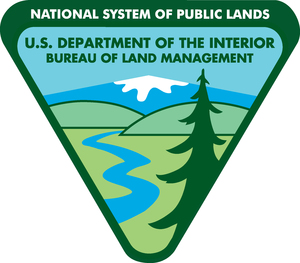 Comment submitted to the Department of the Interior by Profs. Mary L. Lyndon and David S. Levine
Comment submitted to the Department of the Interior by Profs. Mary L. Lyndon and David S. Levine
We, the undersigned law professors who teach and write about intellectual property and trade secrets, write in opposition to the proposed Bureau of Land Management (“BLM”) regulations of hydraulic fracturing (also known as “fracking”) contained in the Federal Register dated May 24, 2013, particularly proposed regulations 3 CFR 3162.3–3(j)(1) through (4) (the “Regulations”). As we understand them, in sum, the Regulations would allow entities engaged in hydraulic fracturing to withhold purported chemical information trade secrets from the BLM, and by extension, the public. Specifically, the BLM takes the position that to require submission of such information “would increase paperwork burdens on operators, and custodial requirements for the BLM.” Instead, the Regulations favor requiring trade secret holders to submit “an affidavit … to affirm that the undisclosed information is entitled to protection from public disclosure.” The BLM thus proposes to cede to regulated firms a substantial part of its own regulatory responsibility.
While businesses engaged in hydraulic fracturing may have legitimate trade secrets, the public‟s interest in assuring that hydraulic fracturing is managed in a manner that addresses all significant potential risks may legitimately outweigh commercial concerns. Indeed, hydraulic fracturing must be managed and regulated in a manner that truly merits the name “best practices.” As the BLM states on its website homepage, “The [BLM] may best be described as a small agency with a big mission: To sustain the health, diversity, and productivity of America‟s public lands for the use and enjoyment of present and future generations.” To impede the BLM‟s laudable goal of proper stewardship of our natural resources, not to mention debate and discussion of the use of public natural resources in the name of commercial secrecy, regulatory efficiency, and perhaps most egregiously, “paperwork burdens,” is to put commercial interests far above the prior and more general interest in careful stewardship of the environment. The BLM‟s obligation to require best practices, including transparent baseline water quality testing, outweighs commercial competition concerns that trade secret law addresses. Put simply, some trade secrets must give way when broader public interests are at issue.
By writing in opposition to the Regulations, the undersigned take no position on whether hydraulic fracturing should be conducted or whether such activities actually pose any environmental, health or safety (EHS) risks. Any contrary suggestion is unintentional. Rather, we write to note that trade secrecy claims should not impede regulation and consideration of important public concerns.
Click here for the full comment (PDF)




